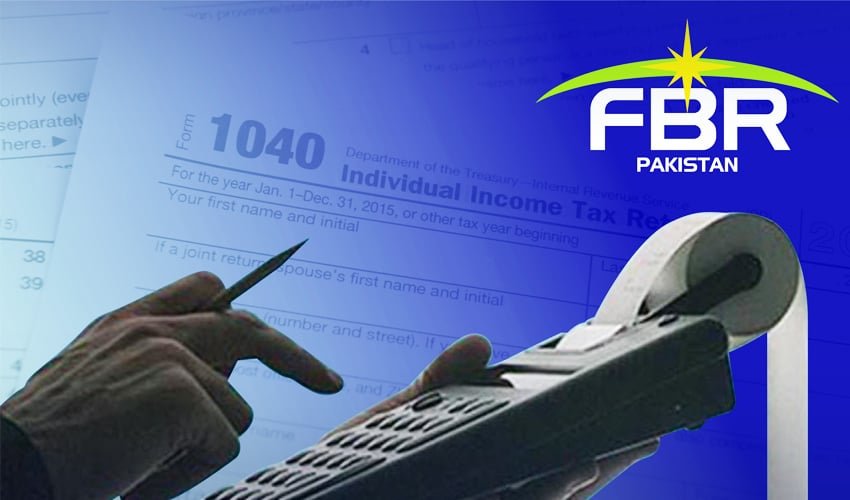INCOME TAX PROCESS IN PAKISTAN
The Income Tax Process in Pakistan
Understanding The Process:
The Income Tax process in Pakistan is a multi-faceted journey that individuals and businesses navigate annually. Governed by a set of regulations and laws, this process plays a crucial role in the country’s economic framework. As taxpayers embark on this journey, it becomes essential to comprehend the intricacies involved and the various steps that constitute the Income Tax process in Pakistan.
Registration and Documentation:
The initiation of the Income Tax process begins with the registration of taxpayers. Individuals and entities meeting the defined criteria are required to register with the tax authorities. This entails submitting the necessary documentation and creating a tax profile that forms the foundation for subsequent interactions with tax authorities.
Income Assessment:
Once registered, the next step involves the comprehensive assessment of income. Individuals and businesses are obligated to declare their earnings, including salaries, profits, and other sources of income. Accurate documentation and reporting at this stage are imperative to ensure compliance with tax regulations.

Tax Calculation and Liability Determination:
With income assessed, the subsequent phase involves the calculation of tax liabilities. Tax rates vary based on income brackets; understanding these nuances is critical. Accurate calculations help in determining the amount of tax owed to the government.
Filing of Tax Returns:
Filing tax returns is a fundamental component of the Income Tax process in Pakistan. Taxpayers are required to submit detailed returns reflecting their income, deductions, and other relevant financial information. Timely and accurate filing is a legal obligation and a proactive step in managing one’s fiscal responsibilities.
Audit and Verification:
Tax authorities may conduct audits and verifications to ensure the integrity of the tax process. This involves a thorough examination of the information provided in tax returns. Individuals and businesses may be called upon to provide additional documentation or clarification during this phase.
Dispute Resolution and Appeals:
In cases where disputes arise, taxpayers have the right to appeal decisions made by tax authorities. The dispute resolution and appeals process is a critical juncture where legal expertise, such as that provided by Income Tax Lawyers, can play a vital role in ensuring a fair and just outcome.
Ongoing Compliance and Planning:
Beyond the annual filing, ongoing compliance with tax regulations is essential. Taxpayers are encouraged to stay abreast of changes in tax laws and leverage strategic planning to optimize their tax positions. This proactive approach not only ensures compliance but also aids in minimizing tax liabilities.
FBR’s Mandate:
As the paramount government agency dedicated to tax collection, reporting, and distribution, the FBR holds a pivotal role in managing the financial intricacies of Pakistan’s central government. Its mandate spans the diverse spectrum of taxpayers, including individual citizens and corporate entities.
Income Tax Dynamics:
Income tax in Pakistan, a direct tax levied by the federal government, is applicable to both individuals and business entities operating within the country’s borders. This tax is calculated based on the income generated, embracing a progressive model where rates fluctuate according to annual earnings.
Progressive Taxation:
The concept of progressive taxation signifies that as an individual or business entity’s income escalates, the corresponding tax rates also increase. This calibrated approach aims to ensure that the tax burden is proportionate to the financial capacity of the taxpayer.
Filing Obligations:
Fulfilling the obligations set forth by the federal government, individuals and businesses are required to file their taxes with the FBR. This entails providing accurate and transparent details about their income, thereby contributing to the revenue pool managed by the central government.
Threshold Requirement:
The determination of income tax liability is contingent upon surpassing a predefined threshold amount. The obligation to file taxes is triggered once an individual or business entity’s income meets or exceeds this threshold. Below this threshold is an exemption from the income tax filing requirement.

The Significance of Taxation in Economic Development
Overview:
Taxation is a vital pillar in sustaining and fortifying any economy, playing a pivotal role in financing social welfare programs and bolstering economic resilience. Understanding the importance of adhering to tax obligations is paramount for individuals and businesses in Pakistan, as it contributes directly to the flourishing of our nation.
Economic Foundation:
Taxation forms the bedrock of economic stability, providing the necessary financial resources to fund essential programs and initiatives. Complying with tax laws is not merely a legal obligation; it is a collective commitment towards the prosperity of our country.
Funding Social Welfare Programs:
The revenues generated through taxes are instrumental in funding various social welfare programs. These initiatives encompass healthcare coverage, unemployment benefits, retirement funds, and more. By contributing to the tax system, individuals and businesses actively build a social fabric supporting the well-being of the entire community.
Infrastructure Development:
Taxes play a crucial role in shaping the physical landscape of a nation. They contribute to developing essential infrastructures such as roads, schools, hospitals, and other public amenities. These foundational elements are imperative for the growth and progress of society.
Educational and Healthcare Initiatives:
A significant portion of tax revenues is allocated to support educational and healthcare endeavors. Funding derived from taxes ensures the availability of quality education and healthcare services, promoting a healthier and more educated population.
Social Security and Retirement Planning:
Taxes contribute to creating and sustaining social security programs and retirement funds. These initiatives provide a safety net for individuals, offering financial support during unemployment and a secure retirement for those who have contributed to the workforce over the years.
Collective Responsibility:
Paying taxes is not merely a financial transaction; it is a demonstration of collective responsibility. It reflects a shared commitment to building a resilient and prosperous nation. Every contribution, whether by individuals or businesses, plays a role in shaping the economic destiny of Pakistan.

Contact Us

Concluding the Journey: Understanding the Income Tax Process in Pakistan
Comprehensive Insight:
In navigating the intricacies of the Income Tax process in Pakistan, we have explored the various stages and facets that individuals and businesses encounter annually. From registration and income assessment to tax calculation, filing, and beyond, this comprehensive journey is a crucial component of fiscal responsibility.
FBR’s Role:
At the heart of this process lies the Federal Board of Revenue (FBR), the central authority responsible for tax collection, reporting, and distribution in Pakistan. Understanding the FBR’s pivotal role illuminates the significance of adhering to income tax regulations and obligations.
24/7 Customer Support
If you want to know anything about our services, you can contact us through Phone, WhatsApp.
Karachi Office
- 0336-3747047
- 0300-3029093
Islamabad Office
- 0336-3747047
- 0300-3029093
Proactive Compliance:
As individuals and businesses engage in this process, proactive compliance is key. Registering incomes with the FBR, accurate filing, and timely response to audits or verifications are vital elements in ensuring adherence to tax laws and contributing to the nation’s economic well-being.
Strategic Planning:
Beyond compliance, strategic planning is an invaluable tool. Leveraging knowledge about progressive taxation, threshold limits, and ongoing changes in tax laws empowers taxpayers to optimize their financial positions while contributing to the broader economic development of Pakistan.
Ongoing Commitment:
The Income Tax process is not merely an annual obligation but an ongoing commitment to transparency, accuracy, and fiscal responsibility. It is a collaborative effort to build a robust economic framework and fund essential infrastructures, social welfare programs, and other initiatives that contribute to the overall well-being of our society.

Need for Professional Guidance:
Given the intricacies of tax laws and the evolving nature of the economic landscape, seeking professional guidance, such as that provided by Income Tax Lawyers, can be invaluable. Their expertise ensures that taxpayers navigate the process effectively, addressing disputes, optimizing tax positions, and contributing to the fair and just operation of the tax system.
Contact Us:
Please contact us for personalized assistance and expert advice on your income tax concerns. Our commitment is facilitating your journey through the Income Tax process, ensuring accuracy, compliance, and strategic financial planning.
